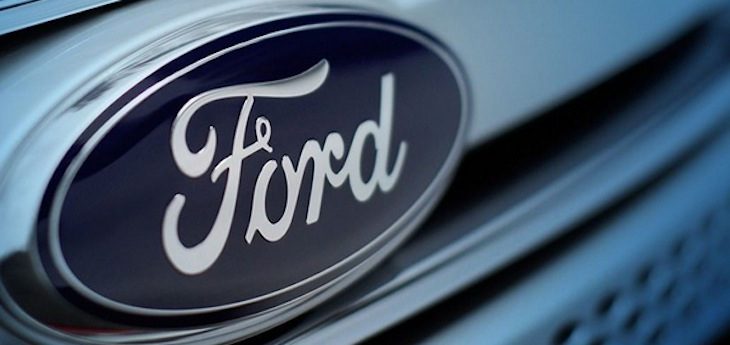Ford cuts to cars could lead to more affordable used-car prices
by July 5, 2018 4:44 pm 1,166 views

Ford Motor Co. recently announced plans to eliminate several lines of cars, but the move isn’t expected to have an impact on a Fayetteville plant that manufactures Ford wheels and might lead to more affordable vehicles for a Bentonville-based buy here, pay here used car dealer.
By 2020, nearly 90% of the Ford’s line of North American vehicles will be SUVs, pickups and commercial vehicles, according to its first-quarter financial report. Over the next few years, the Ford portfolio of North American cars will transition to two — the Mustang and Focus Active crossover, which will be released next year. Lines on the chopping block include the Fiesta, Fusion, Taurus and C-Max.
Customers of Bentonville-based America’s Car-Mart might find that as the value of cars declines, it would allow the used car dealer to sell better cars for lower prices, CEO Jeff Williams said. The company sells a 10-year-old vehicle on average, with 60% cars and 40% pickups and SUVs. Williams expected the percentage of pickups and SUVs sold to rise based on the amount of cars in the market and consumer demand.
“Customers are demanding more trucks and SUVs as gas prices have been lower, they have more room and are perceived as safer,” Williams said.
Globally, 4% of business for wheel manufacturer Superior Industries International can be attributed to Ford passenger cars, and this also includes Ford’s Lincoln brand of cars, said Troy Ford, vice president of finance and treasurer for Southfield, Mich.-based Superior Industries. And while Superior’s Fayetteville plant produces some car wheels for Ford Motor Co., the plant largely manufactures wheels for Ford’s F series pickups.
As a result, Ford said he doesn’t expect Ford’s announcement to impact the Fayetteville plant, which will continue to make wheels for the F series pickups.
Before Ford’s announcement, Superior Industries had projected 1% of its global business in 2020 would be Ford passenger cars as car sales were declining. Ford expects this will be revised as a result of the announcement. In North America, 70% of Superior’s volume can be attributed to pickups and crossovers, and he expects Ford’s line of cars set to be cut to be phased out in 2019 and 2020.
BROADER TRENDS
In May, U.S. Secretary of Commerce Wilbur Ross said evidence suggests that vehicle imports from abroad have hurt the domestic auto industry and will investigate whether these imports are hurting the U.S. economy and national security.
In the past 20 years, imports of passenger vehicles have risen from 32% of cars sold in the United States to 48%, according to the Department of Commerce. Between 1990 and 2017, employment in motor vehicle production fell 22%. American owned vehicle manufacturers in the United States comprise of 20% of global research and development in the auto industry, and American auto part manufacturers account for about 7% in the industry.
The Department of Commerce recently accepted public comment related to its investigation, and public hearings are set for July 19 and 20.
In the first quarter of 2018, 31.6% of new vehicles that were registered were cars, down from 35.9% in the same period in 2017, according to Experian. SUVs and pickups comprised of 64.9% of new registrations, up from 60.5% in the same period in 2017.
In the first quarter of 2018, 11.5% of new vehicles registered were Ford vehicles, only second to Toyota, with 13.4% of registrations in the period. Among owners of Ford sedans who dispose of their vehicle, 44.3% purchase another sedan, while 39.1% purchase an SUV and 7.6% buy a pickup. Of the vehicles Ford sedan owners buy, 18.5% purchase a Fusion, which is one of the lines Ford is planning to cut. Looking at the other lines Ford will cut, 9.4%, 3% and 1.3% of the owners buy the Focus, Taurus and Fiesta, respectively.
In a June sales report, Ford volume rose 1.2%, with pickups up 6%, according to equity analysts Philippe Houchois and Ashik Kurian and equity associate Himanshu Agarwal for Jefferies. U.S. seasonally adjusted annual rate of sales rose to 17.47 million vehicles as auto sales increased 5.4% in June to 1.6 million units. Through the first six months of the year, sales have risen 1.9%, with pickups up 10.2%.
In May, the Manheim Used Vehicle Value Index rose 4.9% to 134.2 and was up 1.25% from the previous month. Used vehicle sales declined 1% in May, and the seasonally adjusted annual rates of sales increased 1% to 39.7 million.
